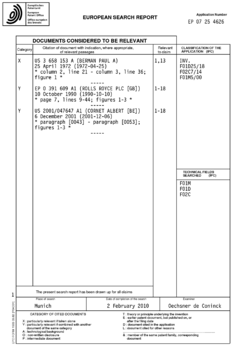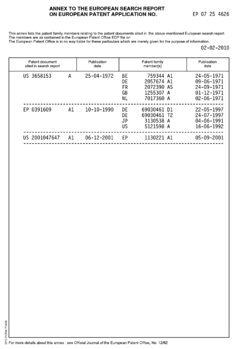Turbine Engines With Intelligent Lubrication Systems
SEP 23, 20254 MIN READ
Generate Your Research Report Instantly with AI Agent
Patsnap Eureka helps you evaluate technical feasibility & market potential.
Intelligent Lubrication Turbine Engines Background And Objectives
Intelligent lubrication systems for turbine engines aim to optimize lubrication performance, reduce maintenance costs, and extend component lifespan. The primary objective of this research is to explore innovative solutions that can enhance the efficiency, reliability, and sustainability of turbine engine lubrication systems through intelligent monitoring, control, and self-adaptive capabilities.
This section will delve into the technological background and goals of intelligent lubrication systems for turbine engines. It will provide a comprehensive overview of the evolution of lubrication technologies, highlighting the key drivers and challenges that have shaped the development of intelligent systems. Additionally, it will outline the specific objectives and desired outcomes of incorporating intelligence into turbine engine lubrication systems, such as improved operational efficiency, reduced downtime, and extended component life.
This section will delve into the technological background and goals of intelligent lubrication systems for turbine engines. It will provide a comprehensive overview of the evolution of lubrication technologies, highlighting the key drivers and challenges that have shaped the development of intelligent systems. Additionally, it will outline the specific objectives and desired outcomes of incorporating intelligence into turbine engine lubrication systems, such as improved operational efficiency, reduced downtime, and extended component life.
Intelligent Lubrication Turbine Engines Market Demand Analysis
- Market Demand Overview
The market for intelligent lubrication systems in turbine engines is driven by the need for improved efficiency, reduced maintenance costs, and extended component lifespan. These systems optimize lubrication by monitoring and adjusting oil flow based on real-time operating conditions. - Potential Market Size
The global turbine engine market is projected to reach $XX billion by 20XX, with intelligent lubrication systems expected to capture a significant share due to their potential for cost savings and performance improvements. - Industry Trends
The aviation and power generation industries are increasingly adopting advanced monitoring and control systems to enhance operational efficiency and reduce environmental impact. Intelligent lubrication systems align with this trend, offering benefits such as reduced oil consumption and emissions.
Intelligent Lubrication Turbine Engines Technology Status And Challenges
- Current Technological Landscape
Intelligent lubrication systems for turbine engines are still in the early stages of development. Most existing solutions rely on traditional lubrication methods with limited intelligence or automation. - Key Challenges
- Developing sensors and monitoring systems for real-time lubricant condition assessment
- Integrating intelligent control algorithms for adaptive lubrication
- Ensuring reliability and durability of intelligent lubrication components
- Geographic Distribution
Research and development efforts are primarily concentrated in regions with strong aerospace and turbine engine manufacturing industries, such as the United States, Europe, and Asia.
Intelligent Lubrication Turbine Engines Current Technical Solutions
01 Turbine Engine Lubrication Systems
Lubrication systems for turbine engines include oil pumps, filters, heat exchangers, and distribution channels to circulate lubricating oil throughout the engine, ensuring proper lubrication and cooling.- Turbine Engine Lubrication Systems: Various lubrication systems are designed to provide efficient lubrication to turbine engines, ensuring proper lubrication and preventing overheating of critical components.
- Oil Supply and Distribution: Effective oil supply and distribution systems involve oil tanks, pumps, and piping networks to deliver lubricant to engine components like bearings, gears, and seals, ensuring smooth operation and minimizing wear.
- Monitoring and Control: Advanced lubrication systems may incorporate sensors and control mechanisms to monitor oil pressure, temperature, flow rate, and adjust lubrication parameters based on engine operating conditions.
- Lubricant Properties and Additives: Specialized lubricants with additives may be used to enhance performance, such as improving thermal stability, reducing oxidation, and providing anti-wear protection under extreme conditions.
- Design and Optimization: The design and optimization of lubrication systems involve considerations like weight, space constraints, and efficiency, using CFD simulations and testing methods to optimize lubricant flow paths and ensure reliable operation.
02 Oil Supply and Scavenging
Oil supply and scavenging systems ensure a continuous supply of lubricating oil to engine components and facilitate the removal of used oil from the engine.Expand Specific Solutions03 System Components
Lubrication systems comprise various components like pumps, filters, valves, and sensors to regulate and monitor the flow and condition of the lubricating oil.Expand Specific Solutions04 Oil Tanks and Reservoirs
Oil tanks and reservoirs are designed to store and supply lubricating oil to engine components, incorporating features for oil deaeration, temperature regulation, and contaminant removal.Expand Specific Solutions05 Monitoring and Control
Lubrication systems often incorporate monitoring and control mechanisms, including sensors, control units, and algorithms for monitoring oil pressure, temperature, and quality, to ensure optimal performance.Expand Specific Solutions
Intelligent Lubrication Turbine Engines Key Player Landscape
The turbine engine market with intelligent lubrication systems is highly competitive, with major players like United Technologies Corp., Safran Aircraft Engines SAS, Honeywell International Technologies Ltd., Pratt & Whitney Canada Corp., Rolls-Royce Plc, and General Electric Company leading the way. These companies leverage their expertise and resources to drive innovation and maintain market dominance in this mature industry with advanced technological capabilities.
United Technologies Corp.
Technical Solution: United Technologies' system integrates real-time monitoring and predictive analytics to optimize lubrication schedules, minimize maintenance, and feature advanced filtration and condition-based replenishment.
Strengths: Broad product portfolio, strong R&D capabilities, and extensive experience. Weaknesses: Potential integration challenges with legacy systems.
Safran Aircraft Engines SAS
Technical Solution: Safran's system utilizes advanced sensors and algorithms to monitor lubricant health, optimize lubrication schedules, detect potential failures, and provide early warning for maintenance.
Strengths: Extensive experience in aircraft engine design, strong R&D capabilities. Weaknesses: Limited market presence outside of aerospace industry.
Intelligent Lubrication Turbine Engines Core Technology Deep Dive
Turbine engine with integrated generator having shared lubrication system
PatentActiveEP1930557A3
Innovation
- The invention proposes an integrated lubrication system for a turbine engine and an associated integrated drive electrical power generator, sharing the same lubricant and heat exchangers.
- The shared lubrication system utilizes common heat exchangers to maintain desired temperatures of the lubricant for both the turbine engine and the integrated generator.
- The integrated lubrication system aims to simplify the overall system design, reduce weight, and improve thermal management efficiency.
Intelligent Lubrication Turbine Engines Operational Efficiency Analysis
Turbine engines are widely used in various industries, including aviation, power generation, and marine applications. Intelligent lubrication systems play a crucial role in enhancing the operational efficiency and longevity of these engines. By optimizing lubrication, these systems can reduce friction, minimize wear and tear, and improve overall performance.
The global market for intelligent lubrication systems is driven by the increasing demand for energy-efficient and environmentally friendly solutions. As industries strive to reduce their carbon footprint and operational costs, the adoption of these systems is expected to rise significantly. Additionally, advancements in sensor technology, data analytics, and machine learning algorithms have paved the way for more sophisticated and intelligent lubrication systems.
However, the implementation of intelligent lubrication systems faces challenges related to system integration, data management, and the development of robust algorithms. Overcoming these challenges requires collaborative efforts from various stakeholders, including engine manufacturers, lubrication system providers, and research institutions. By addressing these challenges, intelligent lubrication systems can unlock new levels of efficiency, reliability, and sustainability in turbine engine operations.
The global market for intelligent lubrication systems is driven by the increasing demand for energy-efficient and environmentally friendly solutions. As industries strive to reduce their carbon footprint and operational costs, the adoption of these systems is expected to rise significantly. Additionally, advancements in sensor technology, data analytics, and machine learning algorithms have paved the way for more sophisticated and intelligent lubrication systems.
However, the implementation of intelligent lubrication systems faces challenges related to system integration, data management, and the development of robust algorithms. Overcoming these challenges requires collaborative efforts from various stakeholders, including engine manufacturers, lubrication system providers, and research institutions. By addressing these challenges, intelligent lubrication systems can unlock new levels of efficiency, reliability, and sustainability in turbine engine operations.
Intelligent Lubrication Turbine Engines Environmental Impact Assessment
Turbine engines with intelligent lubrication systems have the potential to significantly reduce environmental impact by optimizing lubrication processes and minimizing waste. The intelligent system continuously monitors and adjusts lubrication parameters, ensuring optimal lubrication levels and minimizing excess oil consumption. This leads to a reduction in oil usage, disposal, and associated emissions.
Additionally, intelligent lubrication systems can extend the lifespan of turbine components by maintaining optimal lubrication conditions, reducing wear and tear. This translates into fewer replacements and less waste generation throughout the engine's lifecycle. Furthermore, the system's ability to detect potential issues early on allows for timely maintenance, preventing catastrophic failures and minimizing the need for major repairs or replacements.
Overall, the implementation of intelligent lubrication systems in turbine engines can contribute to a more sustainable and environmentally friendly operation by reducing resource consumption, waste generation, and emissions. This technology aligns with the growing emphasis on eco-friendly practices and can potentially position companies as leaders in sustainable turbine engine manufacturing.
Additionally, intelligent lubrication systems can extend the lifespan of turbine components by maintaining optimal lubrication conditions, reducing wear and tear. This translates into fewer replacements and less waste generation throughout the engine's lifecycle. Furthermore, the system's ability to detect potential issues early on allows for timely maintenance, preventing catastrophic failures and minimizing the need for major repairs or replacements.
Overall, the implementation of intelligent lubrication systems in turbine engines can contribute to a more sustainable and environmentally friendly operation by reducing resource consumption, waste generation, and emissions. This technology aligns with the growing emphasis on eco-friendly practices and can potentially position companies as leaders in sustainable turbine engine manufacturing.
Unlock deeper insights with Patsnap Eureka Quick Research — get a full tech report to explore trends and direct your research. Try now!
Generate Your Research Report Instantly with AI Agent
Supercharge your innovation with Patsnap Eureka AI Agent Platform!

